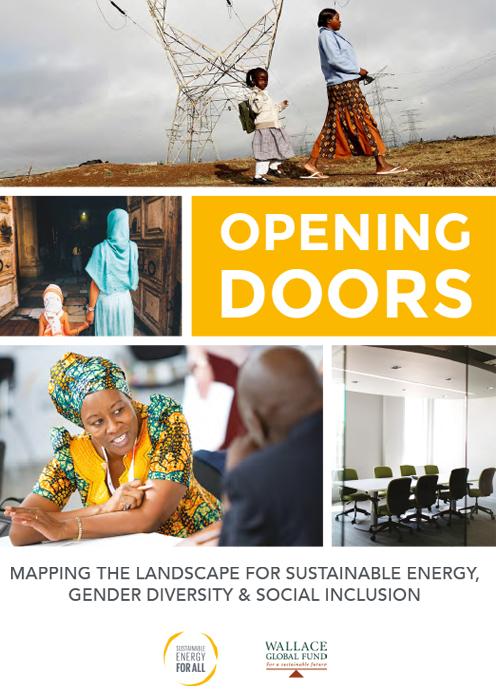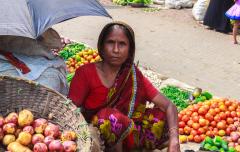Opening Doors: Mapping the Landscape for Sustainable Energy, Gender Diversity and Social Inclusion
Women, girls, ethnic minorities, indigenous people, people with disabilities, and migrants are being left behind in human development gains that have been achieved over the past 25 years. They are being short-changed when it comes to sustainable energy. Whether on basic energy access in emerging economies or executive-level representation at modern energy companies, these groups tend to lack autonomy, authority, and decision-making power. In 2016, women still represented just 40 percent of the global labor force and 23 percent of national decision-makers.
This report captures data from 174 organizations, programs, and policy instruments that are already engaged in gender equality, social inclusion, and women’s empowerment at the intersection with sustainable energy and climate change. Their activities are wide ranging, including renewable energy production and distribution, energy financing, energy policy, and on-the-ground capacity building. There is also a big spread geographically, with most of the programs being in Sub-Saharan Africa (35 percent), followed by South Asia (18 percent), Latin America and the Caribbean (15 percent), and East Asia and the Pacific (11 percent). The data are by no means yet comprehensive, but they already reveal important, immediate challenges for those stakeholders working to get energy services to those without them, both quickly and cleanly.
These challenges include: a lack of funding, especially multi-year funding; low awareness of the importance of integrating gender and social inclusion—as well as climate change considerations—in the design and delivery of energy services; and a very low number of policy instruments addressing these overall issues.
This report highlights 10 promising projects that are underway—from Mexico and Indonesia to Burkina Faso and Bangladesh. These projects are examples of success; but to go beyond incremental improvement to wide-scale success, far bigger shifts are needed towards approaches that integrate gender equality, social inclusion, and women’s empowerment.





